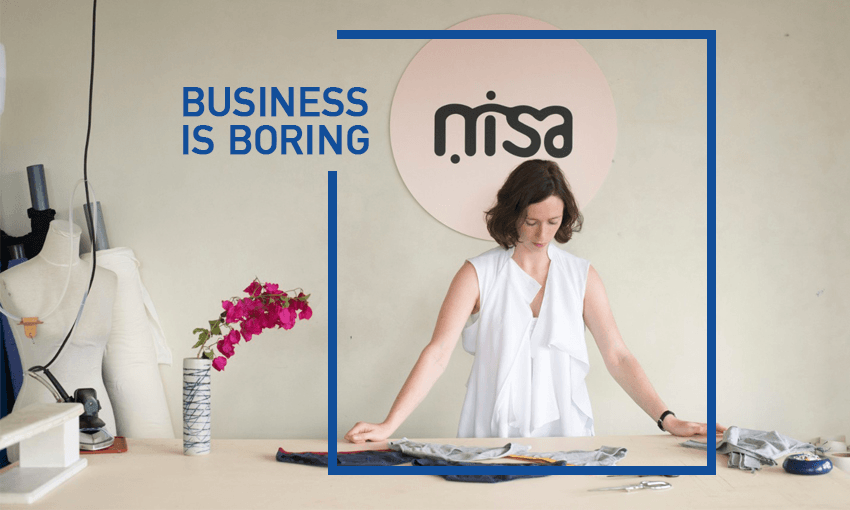Business is Boring is a weekly podcast series presented by The Spinoff in association with Callaghan Innovation. Host Simon Pound speaks with innovators and commentators focused on the future of New Zealand, with the interview available as both audio and a transcribed excerpt. This week Simon talks to Elisha Watson of underwear company Nisa.
When refugees come to New Zealand they find a lot of help from religious and community groups to help get started with housing and public services, with volunteers helping at every step. One of those volunteers though, working with the Red Cross, noticed that employment was something that was hard for refugees. After two years, 40% of former refugees aren’t in work. To try to change this, she looked around for a business that might use their skills, and not finding the need met, decided to leave a law career at one of the top law firms to set up a company making underwear, here, with refugee workers.
Elisha Watson didn’t have a background in clothing, and some of her workers still needed a lot of training. It was a hard first year, with Elisha sharing its highs and lows through crowdfunding, media and blogs. The company is called Nisa, Arabic for ‘women’, and now Nisa has just opened its first store, in Wellington, where shoppers can see the production going on around them with an open workroom. To talk the idea, the journey and what is next, Elisha joined us by phone from Wellington.
Either download this episode (right click and save), have a listen below or via Spotify, subscribe through iTunes (RSS feed) or read on for a transcribed excerpt.
That first amount of money, $20,000, doesn’t sound like a lot to set up a workroom, employ three or four people full time, buy machinery, buy fabric ahead of time in order to be able to then have stock there to sell to pay the rent or develop a website and do some marketing. It sounds to me like that $20,000 would run out in a couple of weeks?
When we started we had all of our employees working part-time and now their hours have increased quite a bit so that was helpful, but it’s crazy when you don’t have much money in a business you get really good at making every single little penny count. I talk to people about how much it cost them to do a photo shoot and people sometimes set aside $5000-$10,000 – I think to myself I could get that done for $400 you know? It’s just about saying what do we have, what can we do with it, and how can I bring this vision to life with a really confined budget. Because of our story and what we’re trying to achieve, the bigger point is that people will bend over backwards for us and help us in ways that we could never have imagined.
We have had an amazing photographer who works for us for so little money and there are so many people just like her who you know would work for much less than their normal hourly rate just to help us get on our way. So that’s how you make $20,000 last for a really really long time.


